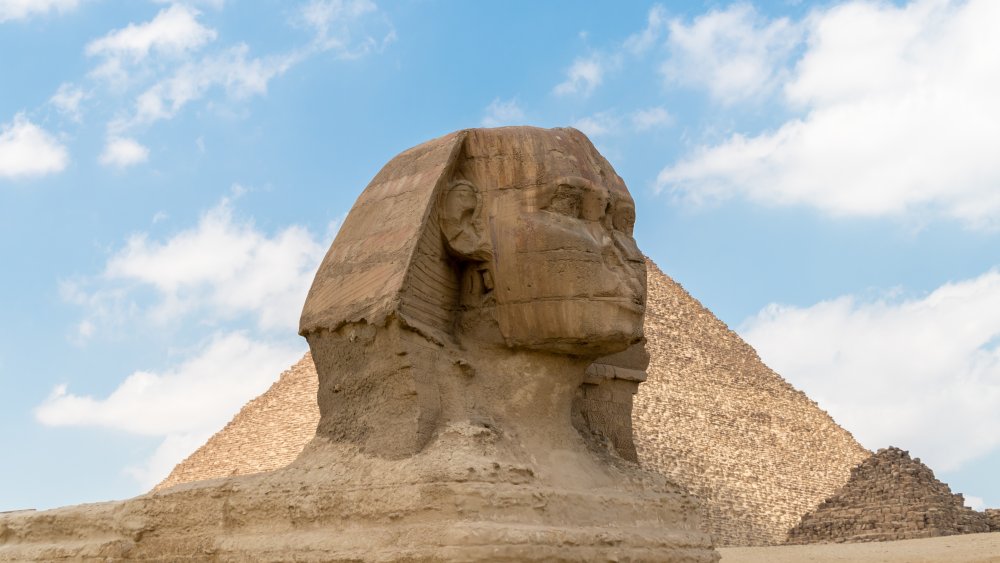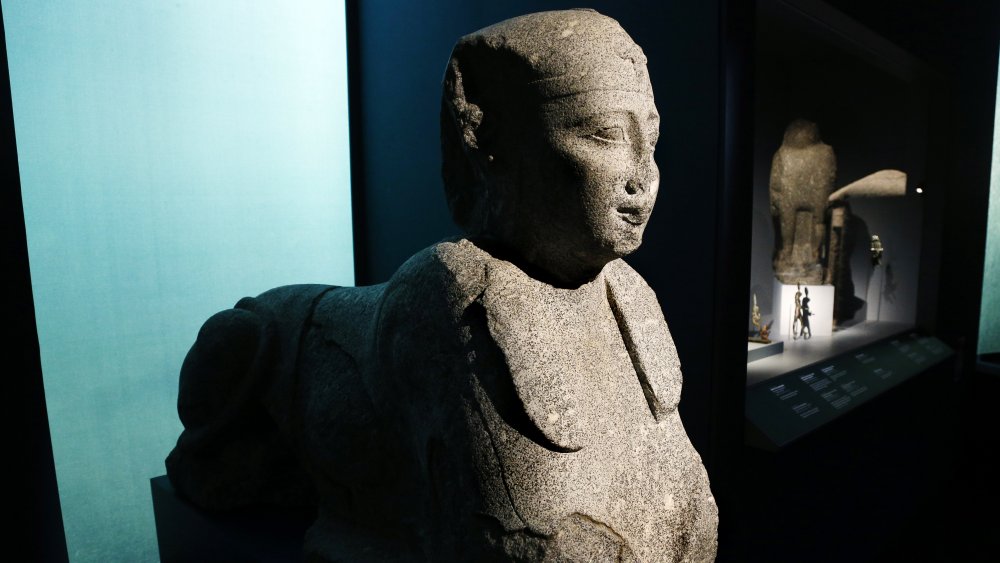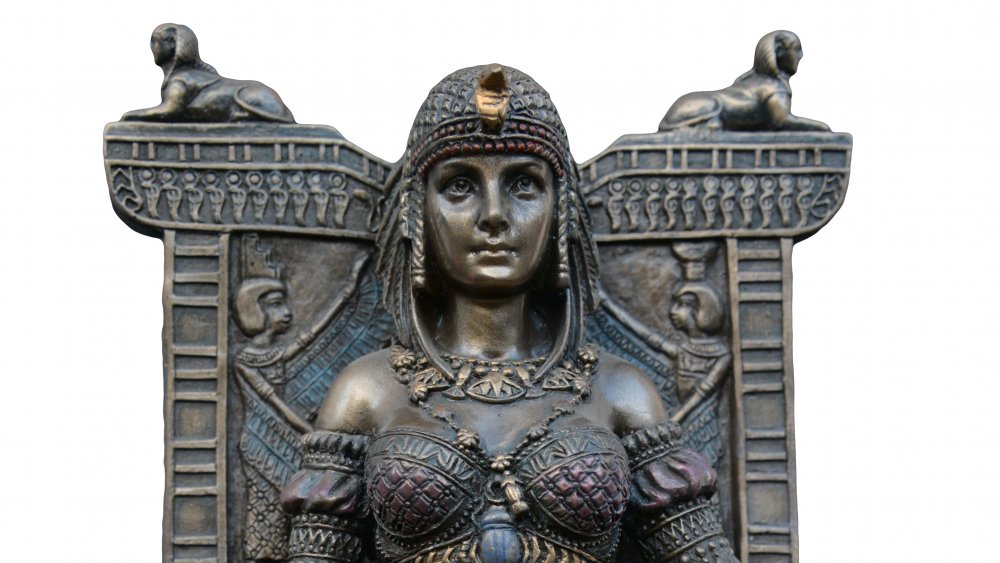The Truth About The Last True Egyptian Pharaoh
Fans of logic fallacies might be thinking, "True Egyptian pharaoh? Is that like a true Scotsman?" Perhaps there's no true answer because there are at least two answers, depending on how you define "Egyptian." If you take it to mean "of or relating to Egypt," then Cleopatra clearly counts as the last true pharaoh. However, if you interpret it in terms of native-born Egyptian pharaohs, then the last was actually Nectanebo II.
Admittedly, the second option runs the risk of sounding a tad racist by seeming to imply that legitimate Egyptian-ness is defined by bloodline. But to quote Avenue Q, "Everyone's a little bit racist." Besides, if you're woke all the time, you probably have insomnia and need a little bit of rest. Un-woke jokes aside, since there's no obviously true definition of a "true Egyptian pharaoh," it seems fair to talk about Cleopatra and Nectanebo, who both had fascinating lives.
Nectanebo II dethroned his own brother
As recounted by Livius, in the fifth century B.C., Persia called the shots until the Egyptian Empire struck back in 404 B.C. and regained its autonomy. Pharaoh Nectanebo I successfully fended off another Persian incursion in 373 B.C. and ushered in an "an age of national restoration." Nectanebo I was succeeded by his son, Teos, while a second son, Nectanebo II, commanded Egyptian troops in Syria. Greek texts suggests that disgruntled Egyptian priests declared war on Teos, backing his brother, Nectanebo, as the new pharaoh. However, Livius raised the possibility that Persia's king employed his go-to tactic of divide and conquer, paying Nectanebo to overthrow Teos and then attacking Nectanebo.
The Persians tried twice to topple Nectanebo, and the second time was a charm. The pharaoh fled Egypt's capital, Memphis, and eventually resettled in Nubia where he died around 341 B.C. Though Egypt would never be ruled by another native Egyptian pharaoh, per the Ancient History Encyclopedia, when Alexander the Great conquered Egypt, he claimed Nectanebo II was his father.
Cleopatra was a killer queen
Modern humans have spent so much time fixating on whom Cleopatra did that they've mostly overlooked what she did during her reign. She took the reins after her father, Ptolemy XII, died in 51 B.C. Live Science writes that she controlled a vast stretch of territory encompassing Cyprus, sections of Libya and the Middle East, and, of course, Egypt. Smithsonian notes that she commanded the army and navy, negotiated with other nations, and ably managed the economy.
Cleopatra was literally a killer queen. After being deposed by her first husband, who was also her brother, she defeated him with help from Julius Caesar and went on to marry and murder her other brother. Cleopatra also had her sister assassinated. Her killer instinct was only surpassed by her killer wit and intellect. Whether or not she was a "true Egyptian pharaoh," she was truly great.


